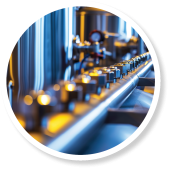https://doi.org/10.15255/KUI.2010.014
Published: Kem. Ind. 60 (4) (2011) 193–199
Paper reference number: KUI-14/2010
Paper type: Conference paper
Download paper:  PDF
PDF

Soft Sensors – Modern Chemical Engineering Tool
N. Bolf
Abstract
Control systems and optimization procedures require regular and reliable measurements at the appropriate frequency. At the same time, legal regulations dictate strict product quality specifications and refinery emissions. As a result, a greater number of process variables need to be measured and new expensive process analyzers need to be installed to achieve efficient process control. This involves synergy between plant experts, system analysts and process operators. One of the common problems in industrial plants is the inability of the real time and continuous measurement of key process variables. Absence of key value measurement in a timely manner aggravates control, but it does not mean that it is always an impossible step. As an alternative, the use of soft sensors as a substitute for process analyzers and laboratory testing is suggested. With the soft sensors, the objective is to develop an inferential model to estimate infrequently measured variables and laboratory assays using the frequently measured variables. By development of soft sensors based on measurement of continuous variables (such as flow, temperature, pressure) it is possible to estimate the difficult- -to-measure variables as well as product quality and emissions usually carried by laboratory assays. Software sensors, as part of virtual instrumentation, are focused on assessing the system state variables and quality products by applying the model, thus replacing the physical measurement and laboratory analysis. Multiple linear/nonlinear regression methods and artificial intelligence methods (such as neural network, fuzzy logic and genetic algorithms) are usually applied in the design of soft sensor models for identification of nonlinear processes. Review of published research and industrial application in the field of soft sensors is given with the methods of soft sensor development and nonlinear dynamic model identification. Based on soft sensors, it is possible to estimate product properties in a continuous manner as well as apply the methods of inferential control. By real plant application of the soft sensors, considerable savings could be expected, as well as compliance with strict legal regulations for product quality specifications and emissions.

This work is licensed under a Creative Commons Attribution 4.0 International License
Keywords
soft sensor, process modelling, process identification, process control, system diagnosis









